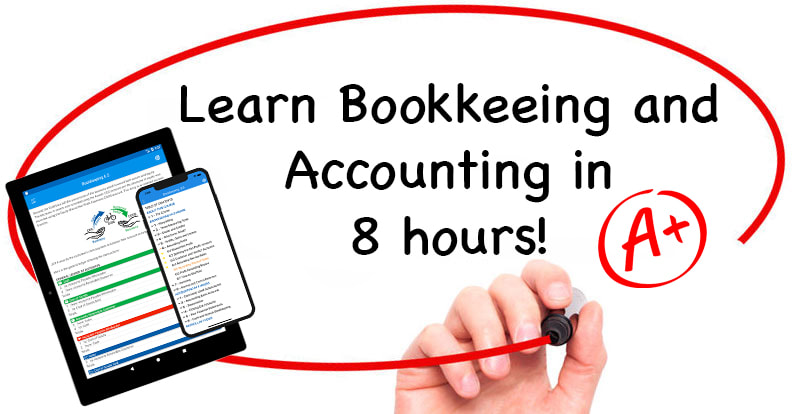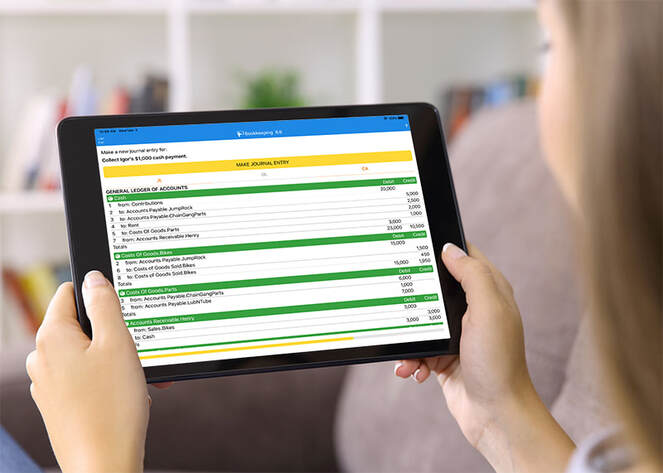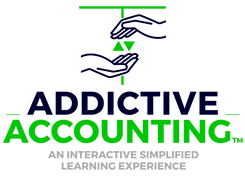Definition: Accounting Equation
What is the Accounting Equation?
The Accounting Equation summarizes the relationship of property and ownership, such that the total amount of property in a business equals the total amount of ownership of the property. A simple form of the Accounting Equation is Property = Ownership. Since property can be owned by owners and lenders, the Accounting Equation can be written as Property = Third-Party Ownership + Owner Ownership. The following figure summarizes the Accounting Equation:
Here is an example of using the Accounting Equation. Let's say a business has $10,000 of cash property, where $4,000 of the cash was obtained from a loan and $6,000 is owned by the owners of the business. The Accounting Equation would calculate this as:
Accounting Equation
Property = Third-Party + Owner
$10,000 = $4,000 + $6,000
$10,000 = $10,000 (balanced)
In formal accounting terms, the Accounting Equation uses Assets as property, Liabilities as third-party ownership, and Equity as owner ownership. This gives us the formal version of the Accounting Equation:
Accounting Equation
Property = Third-Party + Owner
$10,000 = $4,000 + $6,000
$10,000 = $10,000 (balanced)
In formal accounting terms, the Accounting Equation uses Assets as property, Liabilities as third-party ownership, and Equity as owner ownership. This gives us the formal version of the Accounting Equation:
If we use the same example of the Accounting Equation above, we get:
Accounting Equation
Assets = Liabilities + Equity
$10,000 = $4,000 + $6,000
$10,000 = $10,000 (balanced)
Accounting Equation
Assets = Liabilities + Equity
$10,000 = $4,000 + $6,000
$10,000 = $10,000 (balanced)
The Accounting Equation & The Balance Sheet
The Accounting Equation is used to create a business's Balance Sheet statement. The Balance Sheet statement summarizes a business's assets, liabilities, and owner equity just like we did in the previous examples. It is called a Balance Sheet statement because it uses the Accounting Equation to calculate the equality between property and ownership. These values must balance or a mistake would have been made. In the Accounting Equation, every cent of property and ownership must be accounted for.
Want to learn more, you can.
Want to learn more, you can.
Continue Learning in an Interactive-Accounting Textbook
Over 4+ Hours of Free Lessons
The Addictive Accounting course has a purpose:
To help you quickly master the fundamentals of bookkeeping and accounting!
If you are a student who is planning on studying accounting, or a student who is struggling to learn the concepts, this course is for you. If you want an A grade, take this prep course! If you are business owner who wants to fully understand their personal bookkeeping, this course is also for you.
To help you quickly master the fundamentals of bookkeeping and accounting!
- Simplified - created for students and business owners
- Comprehensive - an interactive bookkeeping and accounting textbook
- Practice Make Perfect - in a hands-on bookkeeping simulator
- Learn Finance - cash, profit, equity, and balance statements
- Quiz Yourself - test your comprehension with instant feedback
- Career Boost - communicate finance with confidence
- At Your Pace - complete the course in a week or a weekend
- Teacher's Aid - can be used as an auxiliary tool to enhance learning
- CPA Exam Prep - review fundamentals to greatly improve your score
If you are a student who is planning on studying accounting, or a student who is struggling to learn the concepts, this course is for you. If you want an A grade, take this prep course! If you are business owner who wants to fully understand their personal bookkeeping, this course is also for you.
Practice the Accounting Equation in an Accounting Simulator
Rather than just read about bookkeeping and accounting, learn and practice the Accounting Equation in a hands-on accounting simulation. Learn more about our accounting simulation app or see what you can learn for free in the Addictive Accounting course.






